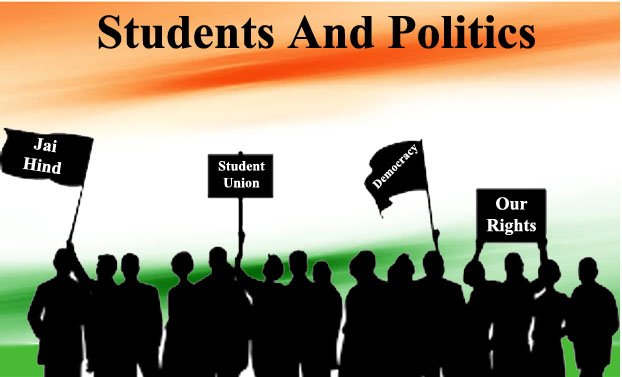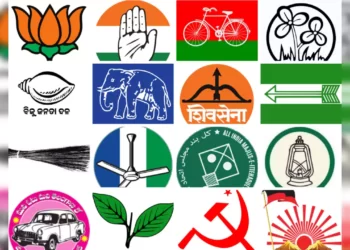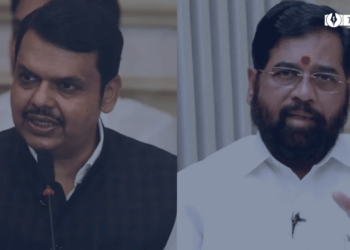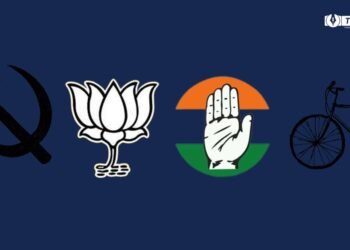[ad_1]
Baba Bhagat Singh, in 1928, stated, “Today, efforts are being made to make the youth blind who have to hold the reins of the country in their hands tomorrow. We must determine for ourselves what will happen as a result of this. We agree that the primary responsibility of students is to study and that they should devote their whole attention to it; but, is it not part of that education to gain awareness of the country’s situation and to build their ability to think about reforms?”
Both the country’s status and direction are decided in its universities and educational institutions. India’s universities have a long history. Moreover, these universities have a long history of politics. Nobody can deny the role that students and student organizations played in India’s freedom. The students’ primary purpose in the freedom war was to fight against the firangi soldiers. The country’s social structure altered, and so did student politics. Following independence, this student power became involved in the rebuilding of a new country and society.
Which leaders are the products of student politics?
Many great Indian politicians honed their trade in student union politics at their Colleges and universities. Among these politicians have been stalwarts such as VP Singh and Chandrashekhar, both of whom have risen to the position of Prime Minister. When India won the war to liberate Bangladesh in 1971, the country’s sense of nationalism was at its peak. At the same time, a movement led by freedom fighter Jayaprakash Narayan emerged at Patna University in Bihar.

All the leaders who led the Jayaprakash Narayan movement were products of student politics. A list of leaders emerged from the movement that arose from the Patna University in Bihar, in which leaders like Lalu Prasad Yadav, Nitish Kumar, Sushil Modi, Sharad Yadav, Ravi Shankar Prasad, George Fernandes, Arun Jaitley, Ram Vilas Paswan, Mulayam Singh Yadav are included. Apart from these, leaders like Sushma Swaraj, Sitaram Yechury, D. Raja, and Ajay Maken also took the first steps of their political lives in student politics.

In Rajasthan, there are three major universities: Rajasthan University, Mohanlal Sukhadia University, and Jai Narayan Vyas University. Most of the seasoned figures who now oversee Rajasthan politics were once involved in student politics at these universities. Ashok Gehlot has been involved in student politics. Similarly, all of Rajasthan’s big names, including Pratap Singh Khachariawas, Mahesh Joshi, Gajendra Singh Shekhawat, CP Joshi, Hanuman Beniwal, and Gulabchand Kataria, are the products of student politics.
Why and how is student politics being phased out?
The number of student leaders coming out of most states has nearly halved. The ruling faction, which includes the Congress, the BJP, and regional parties, has been fearful since the Jayaprakash Narayan agitation. Fear, that if student politics succeeded in overthrowing a powerful Indira government, we will be uprooted at any time. Student union elections are no longer held in the majority of the country’s state universities. There are tight limits for students everywhere, such as a requirement of 75% attendance and 50% marks, election expenditure restrictions, and a slew of other election-related rules.
Apart from that, the ruling authorities have another fear: that any leader who emerges from student politics will deviate from the established pattern. The majority of these leaders were from average families rather than political families. The politics of the families that had created a generation after generational roots in politics were challenged by these leaders. In addition, they defied the caste system. These politicians chose the voices of the backward castes in areas where politics was dominated by a few castes.
In Bihar, Lalu Yadav, who was born into student politics, outlawed student union elections. On this topic, Nitish Kumar, the opposition leader, agreed with him. Mayawati, who was the chief minister of Uttar Pradesh at the time, had also outlawed student union elections. Student union elections were placed on hold in 2004 by Rajasthan Chief Minister Vasundhara Raje, which were later reinstated in 2010. However, no new student leader could enter politics after that. Student union elections were outlawed in Rajasthan during the Corona lockdown, after which all elections for Sarpanch, Panch, local body, and MLA were held, but student union elections were still prohibited.

Apart from this, another secret agreement runs in the parties, under which leaders who have come out of student politics are no longer given that much importance at the party level. Universities played a big role in the movement against CAA-NRC two years ago. Delhi University, Jamia Millia Islamia, Aligarh Muslim University, and JNU played an important role in this movement, but no big face could come out of such a big movement that could make any big impact on the politics of the country in the future. Students and universities also kept their distance from the historical farmers’ movement.
Almost all the parties distanced themselves from the students involved in the CAA-NRC movement, and most of the students were put in jail after filing furious cases, where they are still fighting for their release in the courts. No political party is even ready to take care of them.
Why is student politics important?
Human beings experience a different life in universities, as they leave their hometowns and cultures behind to live with students from all walks of life in order to better comprehend their challenges. In various contexts, he begins to speak for the oppressed class.
Apart from this, it is necessary to develop political understanding in every citizen of a democratic country. From the student union elections held in the universities, they start to get the maturity they need to see and understand the interests and demerits of themselves and their society from a political point of view. This is also necessary so that political understanding does not remain a mere jumla.
If anyone has the power to overthrow the government, it is the youth of the country. If the country’s youth are kept out of politics, neither a generation of competent leaders nor a generation of informed voters will be prepared for the future.
Also Checkout: Changes to IAS regulations proposed, NDA states join the chorus of protest
[ad_2]
Source link









